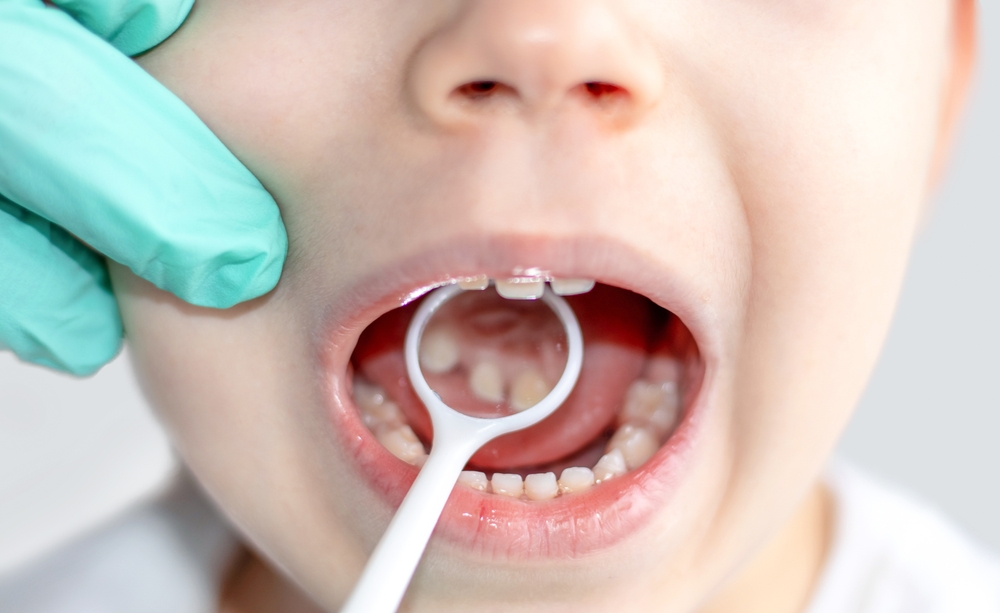
How Do You Know If Your Child Has Cavities?
As parents, we always want to ensure our kids are healthy and happy, and that includes their little smiles. But sometimes, it’s hard to know if something is wrong, like when it comes to cavities.
Spotting the signs early can make all the difference for your child’s comfort and oral health. Let’s talk about how you can tell if your child might have a cavity—and what you can do about it.
Identifying Cavities in Children
Preventing Cavities in Children: Starting dental visits early can make a big difference. The American Academy of Pediatric Dentistry and the Canadian Academy of Pediatric Dentistry both recommend to to bring your child to the dentist by their first birthday. Early visits help catch potential cavities before they become bigger problems.
Identifying Cavities at Home: Keep an eye on your child’s teeth during daily brushing routines. If you notice a visible hole or dark spot, it could be a cavity. Trust your instincts—if something doesn’t look right, it’s worth checking with a dentist.
School Dental Screenings: Many schools offer dental screenings, which are a helpful way to catch some issues. These screenings, done by dental hygienists, look at the surface of the teeth for signs of trouble.
Limitations of School Screenings: While school screenings are helpful, they don’t tell the whole story. Hygienists don’t use X-rays during these exams, so cavities between teeth or in hard-to-see areas might go unnoticed. Regular dentist visits are still important to catch what a school screening might miss.
Take Your Child in for Regular Dental Checkups
Frequent dental checkups are an important way to protect your child’s smile. Pediatric dentists emphasize regular care to monitor and manage dental health, especially since cavities in children can grow quickly. Baby teeth are thinner and softer than adult teeth, so a cavity can develop rapidly and may worsen before it’s visible to parents.
By the time you notice a visible cavity—a hole in the tooth—it may require more extensive treatment beyond a simple filling. Regular checkups can catch cavities early, preventing discomfort and preserving your child’s oral health.
In addition to dentist visits, maintaining good oral hygiene at home is vital. Encourage brushing and flossing routines, and focus on a healthy diet to minimize sugary or acidic foods. While it’s tempting to check your child’s teeth yourself, a dentist is trained to spot issues early and provide the care needed to address them.
By staying proactive with dental visits and daily habits, you can help ensure your child’s teeth stay healthy and strong.
How Frequently Should You Bring Your Child to the Dentist?
Every 6 months, as a general rule
For most kids, a checkup every six months is recommended starting from their very first dental visit. This keeps their oral health on track.
Every 3 months for higher risk children
- If your child has a history of cavities or is at a higher risk for developing them, consider more frequent visits, around every three months.
- Special behavioural needs children who feel nervous or overwhelmed at the dentist require more frequent visits. Visiting more often can help them get used to the environment and build trust with their dental team.
- Children with braces need more frequent visits because braces can make cleaning at home trickier. Your dentist can help ensure everything stays clean and healthy throughout orthodontic treatment.
Tailoring dental visits to your child’s specific needs can help set them up for a lifetime of healthy smiles.
Read our resource: How Often Should You Take Your Child to the Dentist?
If Your Child Needs Braces
A pediatric dentist will assess your child’s teeth to determine whether a visit to an orthodontist is needed. If so, the orthodontist will conduct a complimentary exam to evaluate your child’s dental alignment and growth patterns.
From there, they’ll begin planning for any potential orthodontic treatment, ensuring your child’s needs are anticipated and addressed early.
Special Needs and Neurodiverse Children Should Be Seen by a Specialist
Children with special needs or neurodiverse conditions often benefit from care tailored to their unique requirements. General dentists may refer children with anxiety, phobias, or behavioural challenges to specialists who have additional training in these areas. At Kids Dental Group, the team is highly trained to support children who are medically compromised or have severe dental fear.
The clinic is designed to meet the needs of children with special requirements, including those with neurodiverse conditions or syndromes such as Down syndrome. Staff undergo specialized training to understand and manage these unique needs effectively, ensuring a comfortable and safe experience for every child.
For example, children with Down syndrome may require extra considerations:
- Heart conditions often necessitate premedication before dental procedures.
- Spinal issues, like cervical spine instability, may limit neck movement during exams.
- A larger tongue size, common among children with Down syndrome, may require adjustments in how the examination or cleaning is performed.
Specialized care involves recognizing and adapting to these needs, and facilities like Kids Dental Group are equipped to provide this level of support. The goal is to ensure that every child, regardless of their circumstances, receives compassionate and comprehensive dental care.
Kids Dental Group Can Help
Taking care of your child’s smile can sometimes feel overwhelming, but you’re not alone. If you’re worried about your child’s breath, dental stains, or anything else, we’re here to help.
Reach out to us to schedule a checkup—together, we can keep those little teeth healthy and bright!
